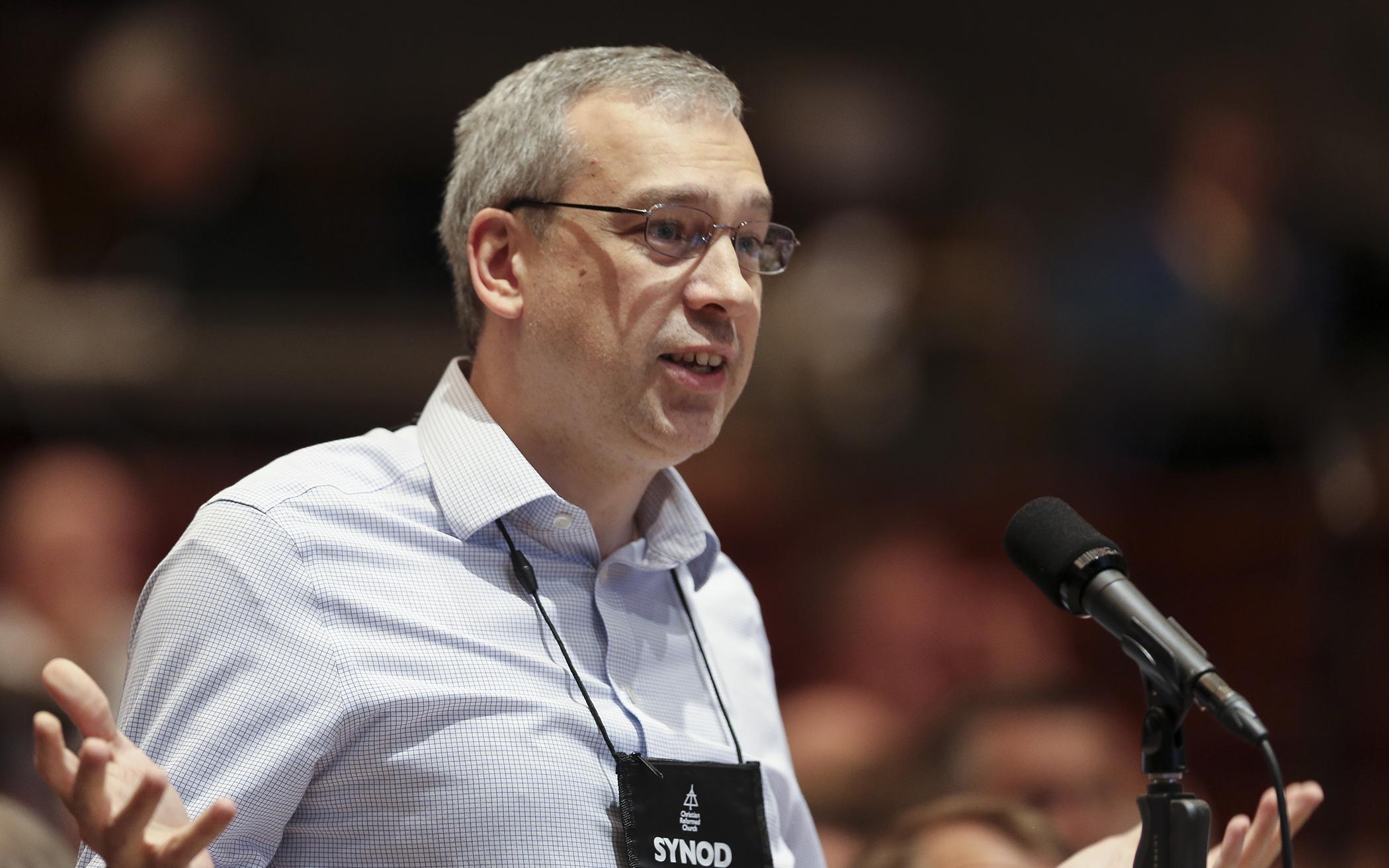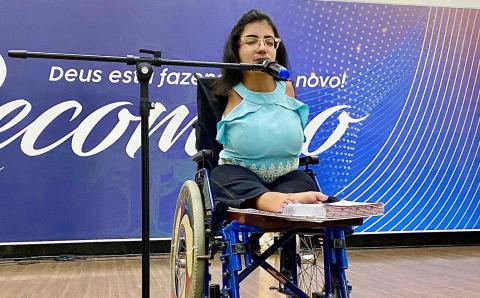How should ministers for the Christian Reformed Church be trained? After a lively debate, Synod 2022 agreed to changes in academic requirements for those training for ministry. (Synod is the general assembly of the CRC.)
Calvin Theological Seminary, the official seminary of the CRC, has made some changes to its curriculum. Anthony Elenbaas, Classis Hamilton, noted the changes, saying that seminaries broadly are moving from “heavy academic training” to a more vocational model, and changes in the requirements for biblical languages and preaching are consistent with this trend.
The denomination’s Candidacy Committee, which acts as the gatekeeper guiding those seeking to enter CRC ministry, proposed modifications to its requirements for ministerial candidates that would reflect these changes in the seminary curriculum.
In the revised Calvin Theological Seminary curriculum, two tracks are offered for students training to become pastors. One requires six credits of Hebrew and six of Greek, as has been the case for years. The other requires less time in the classroom and focuses on preparing students to use digital tools for handling the original texts of the Bible.
The seminary also modified how it trains preachers. The training is competency based, not classroom based. Depending on the skills the student brings to the pulpit, they are assigned to various supplemental classes or other non-classroom-based training.
Stephen Terpstra, Classis Zeeland, objected, saying that currently “ministry context is more challenging, not less challenging,” and for that reason the seminary and the Candidacy Committee should “seriously consider increasing (their) requirements.” He added, “I’ve heard many candidates examined, and I have deep concerns.”
Susan LaClear, new director of the Candidacy Committee, answered by saying that she did not “believe the changes are a diminishment,” adding, “what may seem like less is actually more.”
Underlying this debate is a long-term movement toward diversification of training for ministers in the Christian Reformed Church. Synod took another step in that direction when it recognized an existing practice to ease the passage of ministers from other denominations into the Christian Reformed Church. (Article 8 in the Church Order.)
Before congregations are permitted to call ministers from other denominations, they must prove that they have made a thorough search for ministers in the Christian Reformed Church and the Reformed Church in America to see if suitable candidates can be found. In the Church Order, this is referred to as the establishment of “need.”
But often congregations for their own reasons prefer candidates from outside of the two denominations and do not wish to establish “need.” The Candidacy Committee has recognized this and for several years permitted congregations to call ministers from outside the the two denominations provided these ministers take certain classes from Calvin Theological Seminary and follow the process specified by Candidacy.
Synod gave official recognition to this work-around for the “need” provision by requiring a modified curriculum to make it easier for congregations to call ministers from outside the denomination.
Synod 2022 is meeting at Calvin University in Grand Rapids, Mich., from June 10-16. Find daily coverage from The Banner news team at thebanner.org/synod, download the Banner app on your mobile device, or follow The Banner Magazine on Facebook. On Twitter follow #crcsynod or twitter.com/crcna. Synod is the annual general assembly of the Christian Reformed Church (it did not gather in 2020 or 2021). Connect to the meeting’s livestream, read advisory committee reports, and find other resources at crcna.org/synod.
About the Author
Clayton Libolt was the long time pastor of River Terrace Church in East Lansing, Mich. Since his retirement, he has served in a variety of interim positions. He is presently serving as the interim senior pastor of Sonlight Community CRC in Lynden, Wash.









